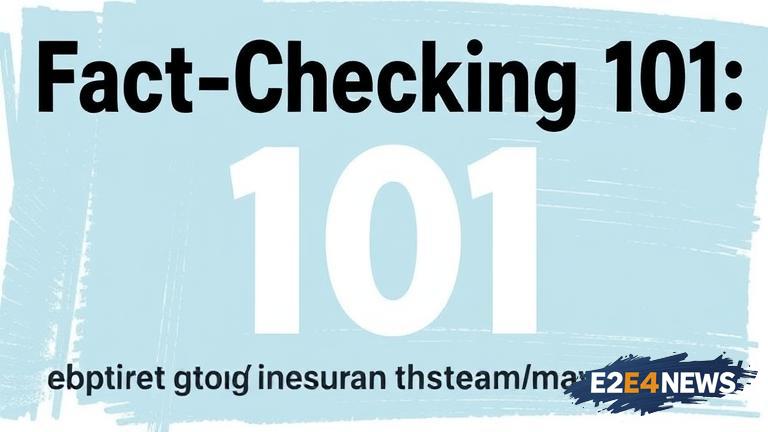In an era where misinformation spreads like wildfire, a professor has taken it upon herself to equip college students with the essential skills of fact-checking. The professor, recognizing the vulnerability of young adults to false information, designed a course to teach students how to critically evaluate sources and identify trustworthy information. The course, dubbed ‘Fact-Checking 101,’ aimed to empower students with the knowledge and tools necessary to navigate the complex landscape of online information. Through a combination of lectures, discussions, and hands-on exercises, students learned how to identify biases, evaluate evidence, and recognize the warning signs of misinformation. The professor’s approach was not only educational but also interactive, incorporating real-world examples and case studies to illustrate the importance of fact-checking. Students were encouraged to think critically and skeptically, questioning everything from social media posts to news articles. As the course progressed, students began to develop a keen sense of awareness, recognizing the subtle ways in which misinformation can be presented as fact. They learned how to use fact-checking websites and tools, such as Snopes and FactCheck.org, to verify the accuracy of information. The professor also invited guest speakers, including journalists and experts in the field, to share their insights and experiences with fact-checking. Through these interactions, students gained a deeper understanding of the complexities of misinformation and the importance of media literacy. The course was not without its challenges, however, as students struggled to distinguish between credible and non-credible sources. Nevertheless, the professor’s guidance and support helped students to overcome these hurdles, and by the end of the course, they had developed a robust set of fact-checking skills. The impact of the course was significant, with students reporting a marked increase in their ability to critically evaluate information. They felt more confident in their ability to identify misinformation and more empowered to make informed decisions. The professor’s approach has far-reaching implications, not only for college students but also for the broader public. In an age where misinformation can have serious consequences, from the spread of disease to the erosion of trust in institutions, the ability to fact-check is more crucial than ever. The professor’s course serves as a model for educators and policymakers seeking to address the issue of misinformation. By teaching fact-checking skills, we can empower individuals to take control of the information they consume and to make informed decisions. This, in turn, can help to mitigate the spread of misinformation and promote a more informed and engaged citizenry. The course also highlights the importance of media literacy, critical thinking, and skepticism in the digital age. As we move forward, it is essential that we prioritize these skills, teaching them not only in the classroom but also in our daily lives. By doing so, we can create a more informed and discerning public, better equipped to navigate the complexities of the digital landscape. The professor’s innovative approach to teaching fact-checking skills has yielded promising results, and it is an approach that should be replicated and built upon. As we continue to navigate the challenges of misinformation, it is essential that we prioritize education and critical thinking, empowering individuals with the skills and knowledge necessary to thrive in the digital age.
